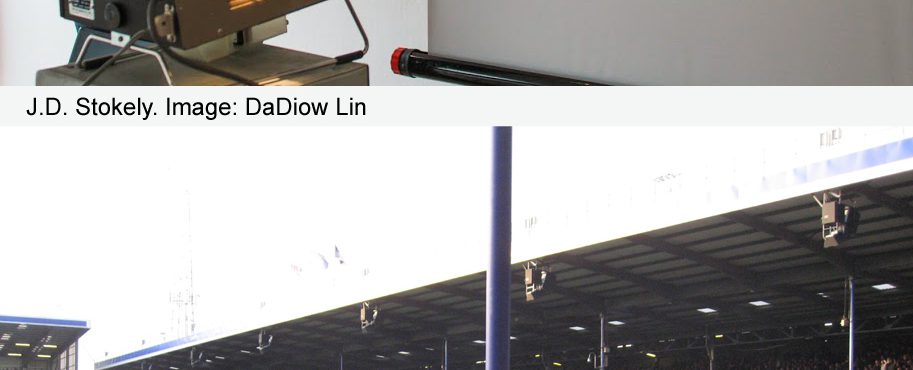- Venue
Stuart Hall Library
-
Time
6:30pm-8:30pm
-
Admission
Free
Audio Recordings of the event are available at the bottom of the page
Onyeka Igwe and J.D. Stokely: Memory, Representation & the Archive: The Use of Autoethnography in Performance and Film
In his book, Disidentifications, José Esteban Muñoz proclaims that “autoethnography is not interested in searching for some lost and essential experience, because it understands the relationship that subjects have with their own pasts as complicated yet necessary fictions.” Our work is interested in the idea of using archived materials to create a “necessary fiction” that explores the complexities of our ancestral histories.
How can we as artists challenge the western simplification and belittling of black history through auto-ethnographic practices? J.D. Stokely (Reparations) and Onyeka Igwe (We Need New Names) have been exploring this question through their own work.
Reparations is an intimate solo performance that takes on the forms of both a birthday party and a lecture to juxtapose the story of a couple’s separation with Jamaica’s search for independence from the UK. We Need New Names is a non-fiction film examining contemporary Nigerian identity through contradictions inherent to an ethnographic reading of the funeral of the filmmakers’ family matriarch.
The first half of this presentation will take on the form of a performative lecture, while the second half will be an open dialogue around auto-ethnographic practices and the archive, pulling from texts by late scholars and cultural theorists José Esteban Muñoz and Stuart Hall.
Kabe Wilson: The Intersectionality of Football Terrace Hate Speech
In a Portsmouth-Tottenham match in 2008, black British footballer Sol Campbell was subjected to such extreme abuse that it ignited a debate about the acceptability of certain forms of chanting, and led to a number of criminal convictions. Focused on a series of chants that appeared to refer to race, sexuality, mental illness, gender and even biblical imagery, a recurrent issue within debate surrounding the event, both in court and the media(s), was how to define exactly what kind of ‘offensive’ the chants were. With lines constantly being redrawn to set the boundaries of acceptability of speech within football, the event and its aftermath marked a critical moment.
Through the lens of Stuart Hall’s theory of ‘inferential’ racism, I will unpick the ways in which the complexity of intersectional hate speech means that the essentialist narratives of media and legal assessment remain inadequate tools for responding to it. With reference to my current project of retelling the story of the 2008 match in a real-time literary narrative – I ask whether critical artistic practice is currently the best way to represent and interrogate the diversity of violent ideologies at work in the language of football culture.

